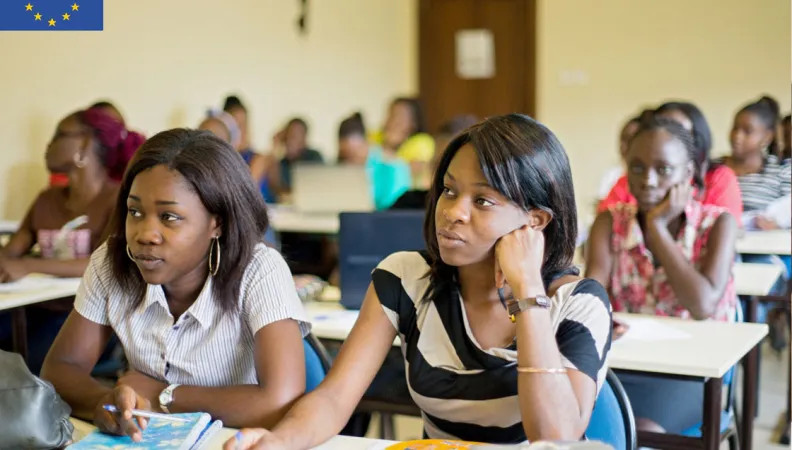 As part of the ENSLAC project, AFD is working with Yes Innovation and its partners to study and identify replicability levers for nature-based solutions in three South American countries – Ecuador, Colombia and Peru. Fifteen initiatives are analyzed in order to understand how natural ecosystems are mobilized in urban areas, what are their impacts and how nature-based solutions (NBS) could be more widely integrated into spatial and urban planning.
As part of the ENSLAC project, AFD is working with Yes Innovation and its partners to study and identify replicability levers for nature-based solutions in three South American countries – Ecuador, Colombia and Peru. Fifteen initiatives are analyzed in order to understand how natural ecosystems are mobilized in urban areas, what are their impacts and how nature-based solutions (NBS) could be more widely integrated into spatial and urban planning.
Context
Latin America is the second most urbanized region in the world, with 81% of its population concentrated there. This strong urbanization, its rapid growth and the weakness of urban planning policies affect areas of high ecological and environmental value. However, natural ecosystems can be a source of solutions for those involved in urban design and development, in particular to respond to the risks generated or exacerbated by climate change.
Understanding nature-based solutions (NBS), studying their implementation conditions and analyzing their integration into public policies is therefore necessary to ensure the livability of cities in the long term. While NBS and green infrastructure are still recent in the urban landscape, initiatives have been deployed for several years and are a privileged source of data to exploit.
This project is part of the ECOPRONAT research programme, which supports research on how to better take into account biodiversity and mainstream it into key economic sectors.
Objectives
The ENSLAC (Enabling Nature based solutions Scale-up in Latin American Cities) project aims to analyse the mechanisms that enable the scale-up of nature-based solutions implementation in Latin American cities, drawing on 15 case studies in Peru, Colombia and Ecuador. This research approach aims to:
- Analyze the challenges of ecological restoration for the management of risks related to the impacts of climate change in urban areas;
- Understand the levers for using NBS as a tool for urban planning and development;
- Identify the temporal, technical, cultural, political, social, financial and cooperative processes that have enabled large-scale NBS-based projects;
- Assess the influence of national or supranational strategies and policies on NBS development;
- Disseminate the knowledge produced by focusing on formats and channels that can be used for the training of urban development actors.
To explore these issues, Yes Innovation, based in Quito, works with the Humboldt Institute for Biological Resources Research, an institution linked to the Ministry of the Environment of Colombia, and Periferia Territorios Vivos, a Peruvian organization specialized in urban planning with an ecological approach.
Method
This research project uses two analytical tools (depending on the case study and the available field data):
- Temporal and spatial analysis (known as BA/CI, which refers to a Before/After and Conservation/Intervention analysis);
- Comparative analysis between case studies on NBS and reference cases of comparable characteristics but without implementation of NBS.
Results
The ENSLAC research project aims to:
- Understand mechanisms that enable scale-up of nature-based solutions as a tool for urban and peri-urban planning;
- Identify replicability levers of these NBS for Latin American cities;
- Produce training materials for urban development actors.
The research team presented its findings during a webinar from the Research Conversations series. The replay is available below (in French and Spanish).
Find out more
Contact
-
Julien CALAS
Research Officer on Biodiversity
Other projects on Nature-based Solutions supported by ECOPRONAT
 Legal notice EU (project) Education plays a crucial role in both the production of and the fight against inequalities, within a single country and between different countries. The rapid increase in the private higher-education offer in emerging and developing countries is contributing to the growth in mass higher education, but it also brings up questions concerning social cohesion. This research program seeks to analyze the link between higher education, development of the private offer, and inequalities in seven countries on three continents.
Legal notice EU (project) Education plays a crucial role in both the production of and the fight against inequalities, within a single country and between different countries. The rapid increase in the private higher-education offer in emerging and developing countries is contributing to the growth in mass higher education, but it also brings up questions concerning social cohesion. This research program seeks to analyze the link between higher education, development of the private offer, and inequalities in seven countries on three continents.
Context
In 2015, the private sector accounted for 13% of students in higher education in Vietnam and 60% in India. To the extent that these figures are reliable (higher education institutes not always being registered in some countries), they indicate the significance the private sector has taken on at this level of education. In Peru and Mexico, nearly 7 out of 10 universities are private. The development of the private sector seems to have in part involved a movement toward democratization of access to higher education in the past 15 years. But this movement is not necessarily synonymous with reduction in inequalities in access or with conditions of academic success becoming more equal. For example, in the poorest quintile of Mexico, only 1% of the age 15-24 segment pursue studies in higher education, compared to 32% in the wealthiest quintile.
This project is part of the first phase of the Research Facility on Inequalities, coordinated by AFD and funded by the European Commission's Directorate-General for International Partnerships over the 2017-2020 period. The first phase of the Facility has led to the conduct of 22 research projects and the publication of around 100 research papers and policy briefs.
Goal
The objectives in this research program are to:
- describe trends in both public and private higher education;
- identify to what extent and the way in which public policies take inequalities in higher education into consideration, and if so which inequalities;
- identify to what extent and the way in which these public policies take into account the growth and/or consolidation of the private sector of higher education, as well as its role in reducing or increasing inequalities at this level;
- detect whether the actors of private-sector higher education include the fight against inequalities in their objectives and, if so, how and why.
Method
This multidisciplinary research program (covering sociology, economics, demography and educology) is original in that it analyzes data from different sources and of different types using a purposive sample of so-called developing or emerging countries: India and Vietnam for Asia; Mexico and Peru for Latin America; Senegal, Mali and the Democratic Republic of the Congo for Africa.
This work will help establish an international research network on the theme of higher education and inequalities. The countries were selected based on the different degrees of development of their system of public and private higher education and the way this teaching is structured (co-existence between public and private, porosity between the two sectors, competition, etc.). They also differ in terms of their social structure (unequal development of the middle classes, for example). The study will compare these regions and countries: the material collected in the various countries will be of the same nature and will be analyzed using the same methodological approaches.
Results
This research will give rise to conferences and seminars, a collective publication, country-documents, policy briefs, and research articles. The expected outcomes are:
- development of a typology on the current public and private offer of higher education in the selected countries;
- development of a conceptual framework and typologies on inequalities and private higher education;
- identification, in the different countries, of policies whose goal has been to work to reduce inequalities in higher education in the course of the past 15 years;
- qualitative analysis of the criteria for access to public or private higher education, for the different categories of students or populations concerned, the conditions in which they study, the processes of certifying school diplomas, etc.;
- identification of the factors of production of inequalities in higher education, and the indicators that might be used to measure and correct them.
You may find the research papers here (in French):
- Inégalités et enseignement supérieur : entre politiques publiques et développement du secteur privé en Argentine
- Universités privées au Mexique: entre reproduction, production et réduction des inégalités
- Le paradoxe de l'enseignement supérieur privé au Sénégal: réduire les inégalités tout en les maintenant
- Des inégalités éducatives à la mise en question de l'opposition public/privé dans l'enseignement supérieur congolais, un défi documentaire et conceptuel
- Enseignement supérieur au Vietnam: privatisation, démocratisation et inégalités
- Complexité et inégalités de l'offre universitaire privée au Pérou. Regard sur la diversité sociodémographique des étudiants et des conditions d'insertion professionnelle des diplômés d'universités privées
- L'expansion de l'enseignement supérieur privé et le creusement des inégalités sociales
- Enseignement supérieur et inégalités sociales en Inde
Contact :
Linda Zanfini, Research Officer, AFD
Rohen d’Aiglepierre, Research Officer, AFD
Étienne Gérard, Research Director, IRD and Director of the CEPED (since 2014)
Contactos:
- Linda Zanfini, encargada de investigación, AFD
- Rohen d’Aiglepierre, coordinador de investigación, AFD
- Étienne Gérard, director de investigación en el IRD y director del Ceped (desde 2014)



